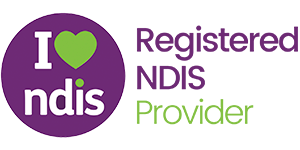The Australian government started a disability support program in 2020 for people who have any significant or permanent impairment. The National Disability Insurance Scheme (NDIS) aims to help its participants build independent lives as they move toward their goals. This program provides them with a wide range of support and funds to afford the services that are required for them to reach their goals.
What Is An Intellectual Disability?
There are many different kinds of disabilities that are covered under NDIS, and intellectual disability is one of them. It is defined as a significant limitation in someone’s mental capacity to function properly. It affects their social and professional life by creating difficulty in communication, and developmental delays can be the cause of this in some cases. Usually, an intellectual disability is diagnosed before the age of 18, and it can have a significant impact on the person’s daily life. Genetics, complications in birth, illness, and injury can be some other reasons for an intellectual disability.
How Does Intellectual Disability Affect Daily Life?
- Development of self-esteem
- Problem-solving skills
- Learning
- Speech
- Attention
- Occupational skills
- Interpersonal skills
- Ability to follow rules
- Time management
While intellectual disabilities have a significant impact on participants’ daily lives, they can always be minimised. NDIS allows its participants to have funds for intellectual disability in their NDIS plan. All they will need to do is request support and provide evidence to justify their need. Since NDIS does not fund anything that is unrelated to the participant’s goals, proving that they need this support to achieve their goals is the only way to get funding for intellectual disability in the NDIS plan. A specialist will assess the participants to identify whether they are eligible for this support or not. If this support is considered to be reasonable and necessary for the participant’s well-being, NDIS will enable funding for intellectual disabilities.
How Does The Support Help?
After the participants have funding for necessary support in their NDIS plan. NDIS service providers help the participants in the following ways.
1. Daily Living
People with intellectual disabilities have a difficult time performing everyday activities. NDIS allows the participants to have a support worker help them in their routine tasks like cooking, cleaning, getting out of bed, toileting, etc. This helps the participants have a company that keeps them entertained, and it also helps them learn these basic skills so one day they can try and do these themselves.
2. Transport
Public transport is not an easy option for everyone, and some NDIS participants may be extremely uncomfortable with using public transport without any help. NDIS provides its participants with funds to commute to their work or community activities without any help.
3. Community Activities
Socialising is an important activity for NDIS participants because, in order to become more independent, they need to meet new people and learn new skills. However, it cannot be an easy task for many. NDIS allows its participants to have a support worker assist them with their community activity so they can feel comfortable and make new friends.





